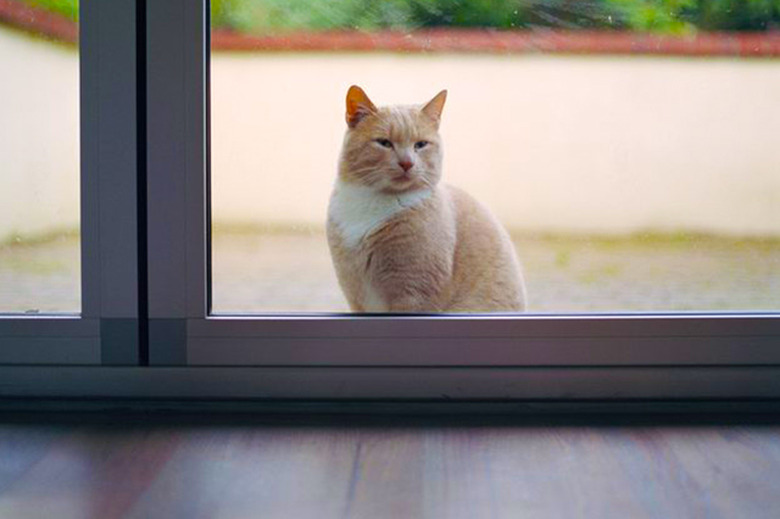Why Do Cats Go To Other Houses?
Your cat loves you. Trust us. But, sometimes our furry friends need freedom to roam! Cats spend most of their days sleeping, eating, snuggling up with their human, and sleeping some more. But when your outdoor cat is not lounging in his favorite spot you may notice him wandering off to other houses. Maybe there is a neighborhood kitty who likes to make stops at your house as well. Why is this? Why do cats go to other houses?
Cats patrol their territory for threats.
Cats patrol their territory for threats.
Former Siamese cat breeder, Gwyn Kemp-Philip explains on Quora that cats have an instinctual compulsion to explore. "Everywhere must be completely and thoroughly investigated," he explains. Many times, this is to eliminate the possibility of threats. Cats are thorough in their actions and constantly alert. They want to make sure all of their nearby environments are safe.
Cats wander because they seek happiness and comfort.
Cats wander because they seek happiness and comfort.
Some animals are also extremely social. Not all cats have a case of the grumps. Male cats tend to step out more than females, but it's quite normal for all cats who are given the freedom to roam to do just that. Cats can be attracted to new sights, sounds, and smells that entice them. Like most animals (and people) cats are drawn to friendly people! If you are warm and welcoming to an outside cat, chances are he's going to want to pay you a visit or two in your home.
MORE: Here's How Cats Find Their Way Home
If it's your cat who saunters off on a regular basis, you may need to accept the fact that you have a part-time kitty. Once that wanderlust sets in, it can be difficult to reverse. Cats will go where they are happy and comfortable. If they find that outside of the home, then they won't hesitate to split up their time or leave entirely.
Cats may run away when something in their home causes them anxiety.
Cats may run away when something in their home causes them anxiety.
If your cat is wandering outside of the home, he may be curious or he may be running from something. Take inventory of your home and see if there are any new changes like new furniture, new animal siblings, or new babies that are making your cat uneasy. If this is the case, work to get your cat acclimated to the new changes in the home and maybe he'll want to stick around.
Cats go where they are welcomed.
Cats go where they are welcomed.
Certain cat owners also claim that if they have a lonely neighbor, or a neighbor who has lost a pet of their own, their cats will instinctively be there for the grieving human, offering them a head to scratch and a belly to rub until they are feeling better. These traveling cats are just doing their part to make the world a brighter place!
Precautions for visiting kitties
Precautions for visiting kitties
If you have a neighborhood cat who likes to visit your home, that's great! New friends are the best friends. There are certain precautions you should take, however. Make sure not to feed a visiting cat (without gathering more information first). You never know what he may be allergic to or what his owners do not want him eating.
Always be slow, gentle, and calm when approaching a cat who comes to visit you. If a cat is not used to you yet, sudden movements or noises might spook him. It takes time for you to get to know the animal and for the animal to get to know you. Try your best to find out who the owners of the cat are, and let them know their pet has been paying you visits. This will give them peace of mind, and who knows, maybe they'll be open to a shared custody agreement!
